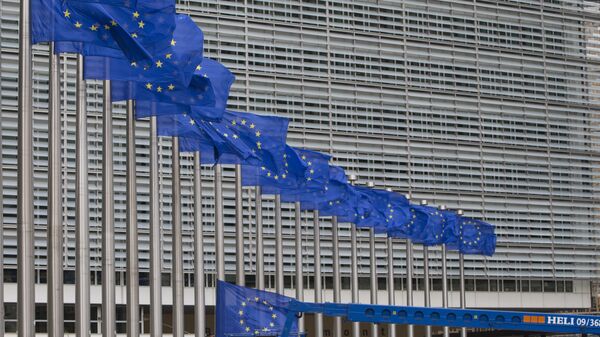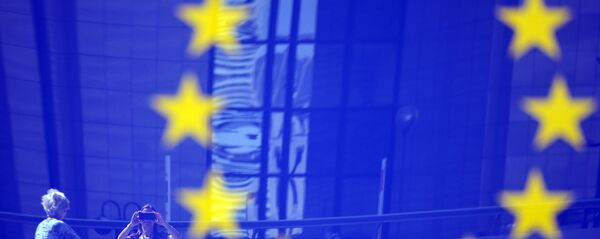"Charles Michel made it clear at the press conference that at the present time Europe, I hope this is the final decision, does not intend to comply with the new US sanctions, we can only hope that the warming of the relations will continue, with pragmatism and common sense prevailing," Vanderplaetse said.
The first vice-president noted that the recent talks between Russian and Belgian top officials might be the evidence of improving relations.
"The meeting [of Michel and Russian President Vladimir Putin] lasted almost two and a half hours instead of one hour, as planned, and this is important. Two weeks later, Belgian Foreign Minister Didier Reinders arrived in Russia, who met with [Russian Foreign Minister] Lavrov [at a meeting of the Joint Commission for Economic Cooperation between Russia and Belgium-Luxembourg Economic Union] and other officials," Vanderplaetse said.
"Charles Michel visited Russia, being well aware that it is necessary to resume the dialogue between Belgium and Russia, between the European Union and Russia. We talk a lot about each of the parties, but not with each other. He is absolutely right, and I think that Russia, the European Union and Belgium will only benefit if we try to resume our relations. In my opinion, this is a positive trend and everyone understands, both Russia and the EU, that sanctions are not an end in themselves. It is necessary to start a dialogue again," the first vice-president said.
Since 2014, the United States and the European Union have introduced several rounds of sanctions targeting Russian individuals and key sectors of country's economy. The sanctions were initially imposed in response to Crimea becoming part of Russia and Western allegations of Russian involvement in the Ukraine crisis. Russia has repeatedly refuted the allegations, warning that the Western sanctions are counterproductive.
In August, US President Donald Trump signed into law a new bill which would allow Washington to target European companies participating in Russian projects, such as Nord Stream 2. The latest round of restrictions has prompted criticism from EU authorities, which said the sanctions were not in line with EU energy security interests and were seen as Washington's attempt to promote own gas.




